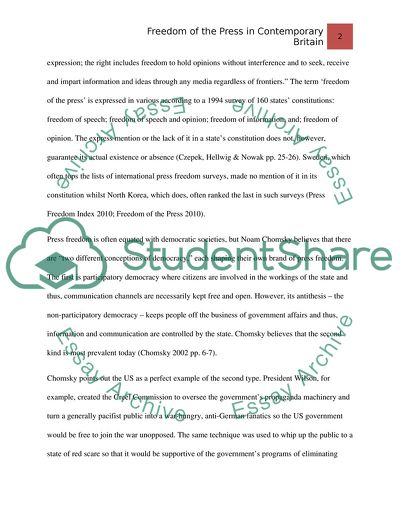Cite this document
(The History of Press Freedom Case Study Example | Topics and Well Written Essays - 1500 words, n.d.)
The History of Press Freedom Case Study Example | Topics and Well Written Essays - 1500 words. https://studentshare.org/sociology/1748415-1-what-does-freedom-of-the-press-mean-to-what-extent-does-it-exist-in-modern-britain
The History of Press Freedom Case Study Example | Topics and Well Written Essays - 1500 words. https://studentshare.org/sociology/1748415-1-what-does-freedom-of-the-press-mean-to-what-extent-does-it-exist-in-modern-britain
(The History of Press Freedom Case Study Example | Topics and Well Written Essays - 1500 Words)
The History of Press Freedom Case Study Example | Topics and Well Written Essays - 1500 Words. https://studentshare.org/sociology/1748415-1-what-does-freedom-of-the-press-mean-to-what-extent-does-it-exist-in-modern-britain.
The History of Press Freedom Case Study Example | Topics and Well Written Essays - 1500 Words. https://studentshare.org/sociology/1748415-1-what-does-freedom-of-the-press-mean-to-what-extent-does-it-exist-in-modern-britain.
“The History of Press Freedom Case Study Example | Topics and Well Written Essays - 1500 Words”. https://studentshare.org/sociology/1748415-1-what-does-freedom-of-the-press-mean-to-what-extent-does-it-exist-in-modern-britain.


